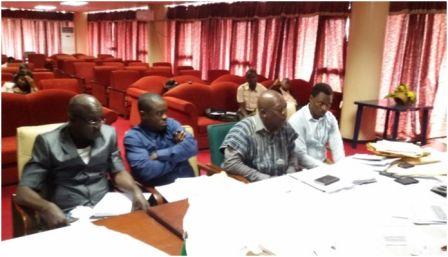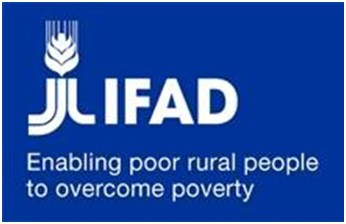IFAD Urges Members to Strengthen Smallholder Farmers
The Rome-based International Fund for Agricultural Development IFAD ended its two-day 33rd Governing Council on February 18 with a call for more efforts to promote smallholder farmers especially women and young people in rural areas to face up to the challenges of food insecurity. A renewed appeal was also made by the 165 Member States of the UN agency’s highest decision-making authority for investment in smallholders to accelerate progress towards achieving the Millennium Development Goals by 2015 and for ways to tackle land degradation, declining resources and the effects of climate change. Recent UN estimates indicate that as a result of the food and global economic crises of the last two years more than 100 million people joined the ranks of the hungry.
The opening session was graced with the presence of Italian President Giorgio Napolitano, the Prime Minister of Tanzania Honourable Mizengo Peter Pinda, the other heads of UN agencies in Rome and many ministers and ambassadors.
President of IFAD, Nigerian-born Dr. Kanayo F. Nwanze said in his address to the governors and delegates during the inaugural session that it was time to focus on ‘encouraging entrepreneurs – both small and large-scale – to invest in the entire rural economy and forge strong economic relations between the rural and urban economies’. He said by the end of 2010, Management will present a new strategic framework for IFAD to guide its work during 2011-2013 with the launch of IFAD 8. ‘I believe our new strategic framework should be underpinned by a view of farming – whatever its size and whatever its scale – as a business with clear business linkages along the value chain from production to processing, marketing, and ultimately to consumption. Creating a vibrant rural economy and reducing poverty therefore depends on creating the right business environment, he said.
Another factor that needs to be taken into account is having a thorough understanding of the demography of rural populations in developing countries, where over 60 per cent of the people are between the ages of 15 and 25, and half of them, obviously, are young women and girls, the IFAD president said. This view was echoed in the UN Secretary-General’s message to the governing council. Mr. Ban Ki-moon reminded the Council that in order for food security to be both comprehensive and sustained, it is necessary to ‘give pre-eminence to the interests of women, who juggle their time between food production, processing, marketing, childcare and balancing the household budget’.
The main panel discussion on the afternoon of February 17 was coordinated by CNN anchor Jim Clancy and it focused among other things, on how to create better market conditions to promote private investment in smallholder agriculture. The panel also looked at how governments can create policies that support smallholder farmers.
Parallel events were held alongside the main session on the following topics including: natural resource management in sub-Saharan Africa; smallholder agriculture and family farming in Asia and Latin America with options for South-South cooperation; and update on IFAD’s response to the Haiti earthquake and coordinated efforts for rehabilitation of agricultural areas
Participants at the side event that focused on natural resource management in sub-Saharan Africa agreed on the importance of an integrated and participatory approach – from the village level to across national borders. They stressed that governments must build on the experiences of local farmers to ensure successful practices inform national policy. The need to encourage rural people and small farmers to practice responsible agriculture growth through collective action and to balance this with enhanced livelihood opportunities was stressed by the Director of Western and Central Africa Division in IFAD, Mohamed Béavogui.
Some suggestions from the participants include: the need to change attitudes in the way we manage our resources and a good policy framework to support small farmers. Tree planting and making stone bumps are two ways we can protect and manage land and water resources because stone bumps can block water flows while trees can give nutrients back to the soil thus preventing erosion. Moreover, managing water resources well will help farmers move from depending wholly from rain fed agriculture. However, the panellists said two things must be promoted if these measures are to succeed, namely, training of farmers in some of these simple measures and overhauling the land tenure system to guarantee ownership as it is difficult to manage burrowed land in the long term.
IFAD has implemented a series of projects in Sierra Leone including the Magbosi Integrated Agricultural Development Project which was approved in 1979. Currently, IFAD is operating a Rehabilitation and Community-based Poverty Reduction Project worth $US 10.8 million. The project’s development goal is to reduce post-conflict poverty and food insecurity and to improve the livelihoods and living conditions of rural communities. A strong call was made at the meeting for member states to replenish the agency’s funds.
Meanwhile, it is worth noting that current policies in Sierra Leone are pointing to the right direction. It should be recalled that recently the Government of Sierra Leone increased its budget allocation for agriculture after it was made the number one priority which led to the formation of the Presidential Taskforce on Agriculture.
Other policies that have been promoted through the Ministry of Agriculture Forestry and Food Security headed by Dr. Sam Joseph Sesay are: the framework for land management which guarantees land to small holders and designates marginal lands to non food production; the recent strengthening of farmers’ organisations at local, regional and national levels; the tractorization scheme and the many initiatives taken by the ministry, in collaboration with the country office of the UN Food and Agriculture Organisation to improve farmer yields, access to market, and raising awareness on the merits of commercial farming and agro-business.
Private sector investment has also been encouraged to complement the efforts of the government and the UN Food and Agriculture Organization whose head in Sierra Leone, Kevin Gallagher received the 2009 B.R. Sen Award for the establishment of an excellent FAO country programme that reinforced ownership and introduced creative innovations, particularly in communications and field approaches.
The Governing Council was preceded by the third biennial Farmers’ Forum, where more than 70 farmers’ leaders focused on how to strengthen their coordination in order to achieve greater food security.
Festus Tarawalie is a member of Sierra Leone’s representation to the three UN agencies in Rome: IFAD/FAO/WFP.
Stay with Sierra Express Media, for your trusted place in news!
© 2010, https:. All rights reserved.





